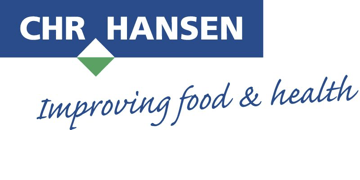
Open 15 PhD positions in the Marie Sklodowska-Curie Actions
Open 15 PhD positions in the Marie Sklodowska-Curie Actions Innovative Training Network ‘’SYNCROP’’ (H2020-MSCA-ETN-764591)
Chr. Hansen A/S
Open 15 PhD positions in the Marie Sklodowska-Curie Actions Innovative Training Network ‘’SYNCROP’’ (H2020-MSCA-ETN-764591)
Applications are invited for 15 PhD positions (early-stage researchers (ESRs)) to be funded by Marie-Sklodowska-Curie ETN SynCrop - Synthetic Circuits for Robust Orthogonal Production. SynCrop team brings together ten academic partners and six industrial partners located in Germany, Denmark, Sweden, Switzerland, Netherlands and UK. The main objective of SynCrop is to investigate modular and tunable synthetic circuits and foster the development of novel production platforms for food additives (e.g. vitamins, carotenoids and exopolysaccharides), and further develop the field of synthetic biology. The ESRs will be trained in one or more areas of quantitative (single-cell) biology, biophysics, biological chemistry, cell engineering, mathematical modelling and microbial physiology, and they will be able to use state-of-the-art methodologies within an intersectorial and multidisciplinary network.
The available 15 positions:
ESR1 (Technical University Berlin, DE): Mapping metabolic traits in adapted strains producing synthetic circuits
ESR2 (DSM, NL): Metabolic pathway control through sensing and mitigation of circuit expression
ESR3 (Christian Hansen, DK): Designer extracellular polysaccharides from bacteria
ESR4 (University of Groningen, NL): The inside of E. coli and improving microbial productivity
ESR5 (Biosyntia, DK): Rewiring of the E. coli as an optimal vitamin production platform
ESR6 (University Hamburg, DE): Transcription and translation burden in circuit production in E. coli and S. cerevisiae
ESR7 (University Edinburgh, UK): A whole-cell model to predict the energetic costs imposed by synthetic constructs
ESR8 (University Edinburgh, UK): A whole-cell model to predict changes in translation and growth during cellular stress
ESR9 (Vrije Universiteit Amsterdam, NL): Whole cell models with robust and adaptive controllers
ESR10 (University of Groningen, NL): Physicochemical conditions of the cytoplasm and organelles of yeast
ESR11 (University of York, UK): Characterizing gene circuits with multi-dimensional optical microscopy
ESR12 (Chalmers University of Technology, SE): Sensing of and adaptation to osmotic stress and metabolic imbalance in yeast
ESR13 (ETH Zurich, Switzerland): Monitoring and improving membrane integrity
ESR14 (Uni Aberdeen, UK): Quantification of the contribution of mechanosensitive channels to metabolic flexibility
ESR15 (ETH Zurich, Switzerland): Development of a mechanistic model of the bacterial central metabolism
For more information please visit SynCrop web page (www.syncrop.org).
Candidates apply electronically for one to maximum three positions and indicate their preference in the application letter. The application package includes a detailed CV, academic certificates and contact details of three persons willing to provide references and should be preferably submitted as a single PDF document to syncrop@chemie.uni-hamburg.de. Selected candidates will need to prove that they are eligible for the position in respect to the ESR definition (mobility criteria, English language proficiency, see below). The deadline for application is November 15th, 2017.
Eligibility criteria
Applicants need to fully respect three eligibility criteria:
- Early-stage researchers (ESR) are those who are, at the time of recruitment by the host, in the first four years (full-time equivalent) of their research careers. This is measured from the date when they obtained the degree which formally entitles them to embark on a doctorate, either in the country in which the degree was obtained or in the country in which the research training is provided, irrespective of whether or not a doctorate was envisaged.
- Conditions of international mobility of researchers: Researchers are required to undertake trans-national mobility (i.e., move from one country to another) when taking up the appointment. At the time of selection by the host organisation, researchers must not have resided or carried out their main activity (work, studies, etc.) in the country of their host organisation for more than 12 months in the 3 years immediately prior to their recruitment. Short stays, such as holidays, are not taken into account.
- English language: Network fellows (ESRs) must demonstrate that their ability to understand and express themselves in both written and spoken English is sufficiently high for them to derive the full benefit from the network training
Benefits and salary
The successful candidates will receive an attractive salary in accordance with the MSCA regulations for Early Stage Researchers http://ec.europa.eu/research/mariecurieactions.
The exact salary will be confirmed upon appointment and is dependent on the country correction factor (to allow for the difference in cost of living in different EU Member States). The salary includes a living allowance, a mobility allowance and a family allowance (if already married). The guaranteed PhD funding is for 36 months, but some countries offer a 48 months PhD position. In addition to their individual scientific projects, all fellows will benefit from internships and secondments, a variety of training modules as well as transferable skills courses and active participation in workshops and conferences. Project start is January 1st, 2018 and hiring will be between January and June 2018.
Please write in your application that you've seen the job at Jobfinder
